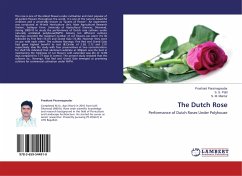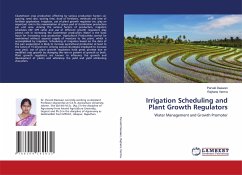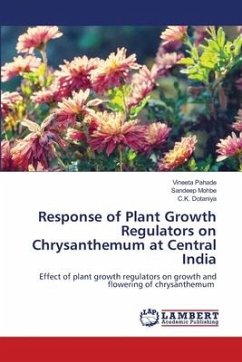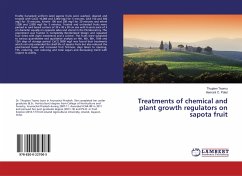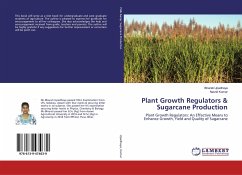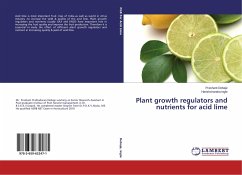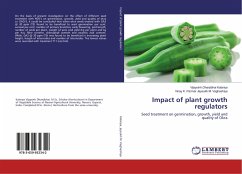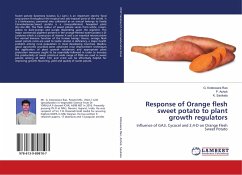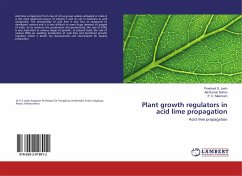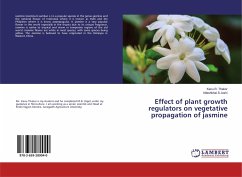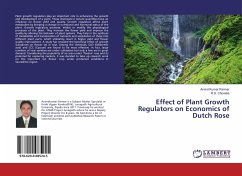
Effect of Plant Growth Regulators on Economics of Dutch Rose
Versandkostenfrei!
Versandfertig in 6-10 Tagen
27,99 €
inkl. MwSt.

PAYBACK Punkte
14 °P sammeln!
Plant growth regulators play an important role in enhancing the growth and development of a plant. These chemicals in minute quantities have an influence on flower yield and quality. Growth regulators affect plant metabolism by bringing a change in nutritional and hormonal status of the plant. Growth regulators promote, inhibit or modify the physiological processes of the plant. They increase the flower yield and improve the quality by altering the behavior of plant systems. They help in the synthesis of metabolites and translocation of nutrients and assimilation of these into different plant ...
Plant growth regulators play an important role in enhancing the growth and development of a plant. These chemicals in minute quantities have an influence on flower yield and quality. Growth regulators affect plant metabolism by bringing a change in nutritional and hormonal status of the plant. Growth regulators promote, inhibit or modify the physiological processes of the plant. They increase the flower yield and improve the quality by altering the behavior of plant systems. They help in the synthesis of metabolites and translocation of nutrients and assimilation of these into different plant parts, which ultimately result in higher yield and flower quality improvement. A study has revealed the beneficial effect of growth substances on flower set in rose. Among the chemicals, GA3 (Gibberellic acid) and CCC (Cycocel) are found to be most effective. In fact, large numbers of rose varieties are under cultivation but only a few are in great demand. Considering the popularity of an area under 'Passion' rose and its potential for capturing markets, it was decided to take up research work on this important cut flower crop under protected conditions in Saurashtra region.



